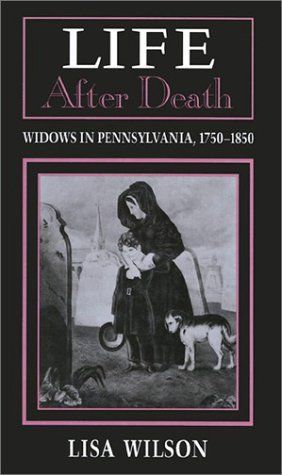
Life After Death Widows in Pennsylvania, 1750-1850
Lisa Wilson traces the experiences of widows in a society that was developing a new ideology of proper female behavior. Using wills, court records, almshouse registers, correspondence, and diaries to explore the lives of widows during this period, Wilson alters our understanding of the diversity of women's experiences and adds a new dimension to the "separate spheres" explanation of gender roles. For this group of early American women, family concerns rather than the dictates of femininity lay at the core of their lives. The focus of this study, Chester County and Philadelphia between 1750 and 1850, provides a backdrop from which many types of widowed women can be observed. Philadelphia during this time was a growing urban center. With this growth came economic change and the beginning of industrialization. In Chester County, the traditional, family-centered farms remained crucial to the community, and yet small towns were beginning to emerge in the countryside. This study focuses on both city and country to better understand the circumstances of widows in two unique economic and social environments. Wilson contends that, despite the dictates of their gender, women had an active role to play within their families and within marriage. Her research shows that some women were involved in financial planning and management throughout their marriages and that their husbands' wills reveal an expectation of trust that their wives would exercise good judgment in maintaining the family property. While carrying on business activities outside the home challenged prevailing ideas of femininity, Wilson demonstrates that, for a widow, this concern was often secondary to the primary needs of her family.